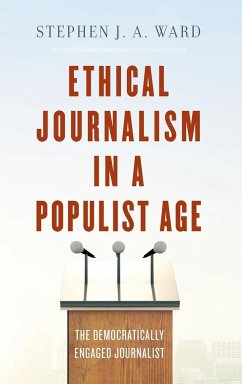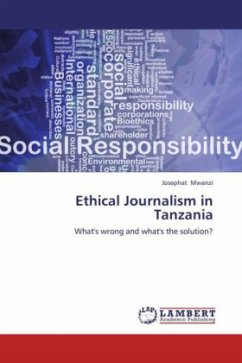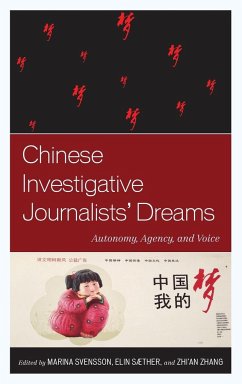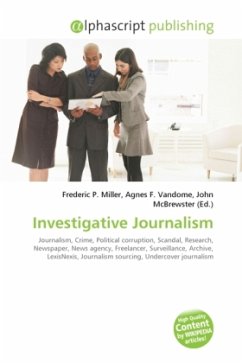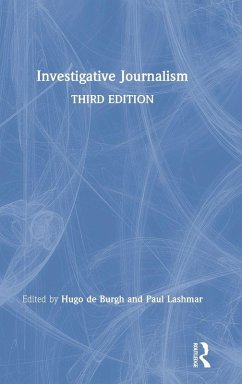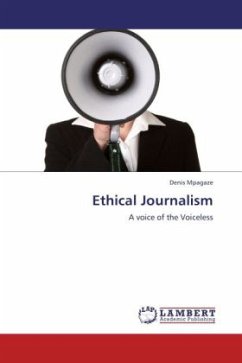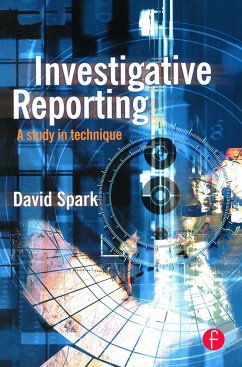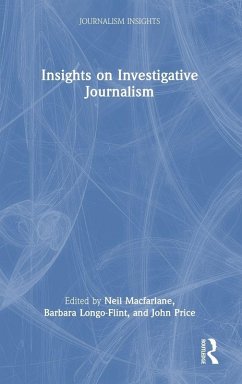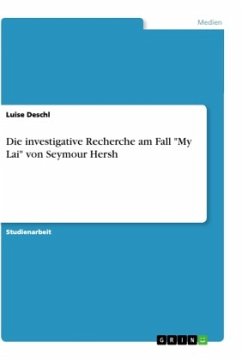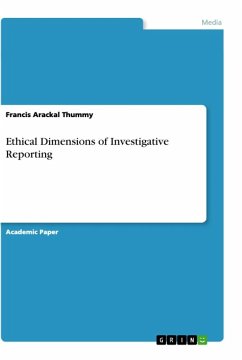
Ethical Dimensions of Investigative Reporting

PAYBACK Punkte
0 °P sammeln!
Academic Paper from the year 2019 in the subject Communications - Journalism, Journalism Professions, , language: English, abstract: One of the most authoritative definitions of Investigative Reporting (IR) comes from the association of Investigative Reporters and Editors (IRE): It is the reporting, through one's own work, product and initiative, matters of importance which some persons or organizations wish to keep secret. According to this definition the three basic elements of IR are: that the investigation be the work of the reporter, not a report of an investigation made by someone else; ...
Academic Paper from the year 2019 in the subject Communications - Journalism, Journalism Professions, , language: English, abstract: One of the most authoritative definitions of Investigative Reporting (IR) comes from the association of Investigative Reporters and Editors (IRE): It is the reporting, through one's own work, product and initiative, matters of importance which some persons or organizations wish to keep secret. According to this definition the three basic elements of IR are: that the investigation be the work of the reporter, not a report of an investigation made by someone else; that the subject of the story involves something of reasonable importance to the reader or viewer; and that others are attempting to hide these matters from the public. At the same time it should be added that views on IR is somewhat polarized.The answer to why IR is needed is manifold. Some of the tools that could be used for IR are archives, whistle-blowers, anonymous sources, and undercover operations (Sting). IR is a public service and it is a powerful catalyst for change and so it should be based on ethical principles. Some of the ethical principles on which an investigative reporter might base his/her work are: Aristotle's Golden Mean; Kant's Categorical Imperative; Mill's Principle of Utility; and Judeo-Christian Principle. For, he/she would have to face ethical dilemmas connected to sources, sting (hidden camera and bribery), fake stings, objectivity, privacy, and trial by media.




